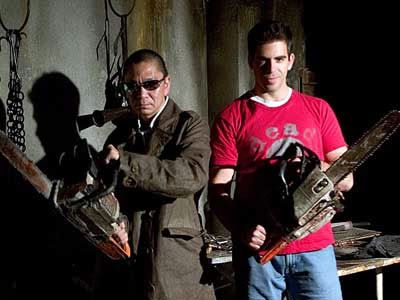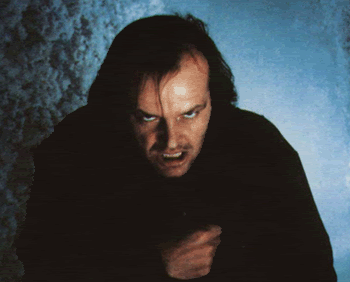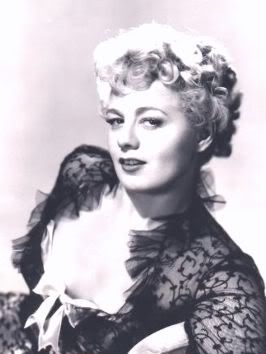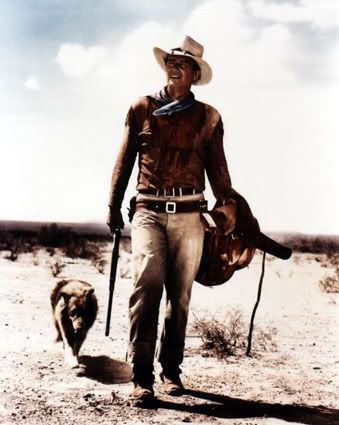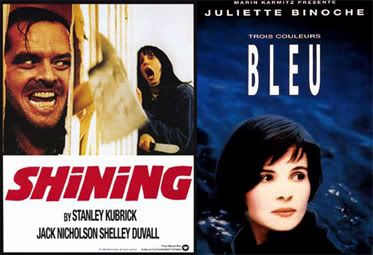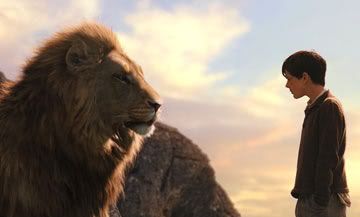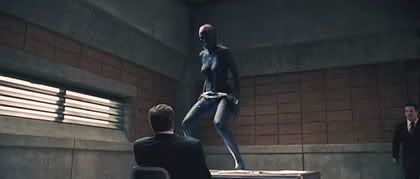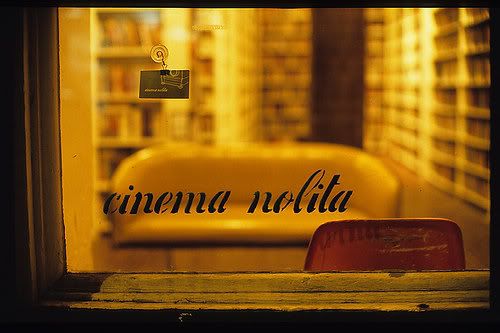Brokeback Mountain
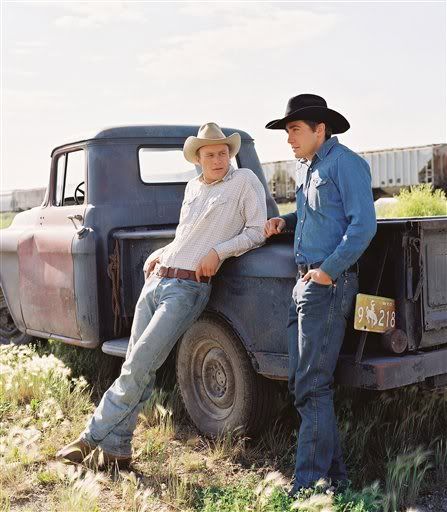
The other day I managed to pull myself away from college application land long enough to make it down to Images to see Ang Lee's recent opus. I can now confirm - everything you have heard from critics about this movie is true, and several things you might not have heard are true too.
One thing that struck me about this picture was the delayed emotional reaction that it stirred in me. Truth be told, even though I admired every aspect of the movie, I felt a little bit emotionally distanced throughout the first two thirds of it. While the ending was, indeed, really heartbreaking, I walked out of the cinema thinking, yeah, that was a really nice bit of moviemaking of great social significance, but not the greatest thing ever committed to film. The next day, however, it's like it took a while for the other shoe to drop. I woke up about 45 minutes before the alarm clock, thinking, "oh my god...those poor guys." I felt so damn sad I could hardly get out of bed! That's the kind of movie Brokeback Mountain is. It's subtle and understated (for the most part... the onoxious, Ry Cooderish twangy guitar score was the only weak spot), it's a movie that doesn't come to you, you have to go to it...and when you do, you are in for one helluva depressing piece of cinema.
The story opens in rural Wyoming in the summer of 1963, where lonely ranch hands Ennis Delmar (Ledger) and Jack Twist (Gyllenhaal) are assigned to tend a herd of sheep on the titular mountain. The islolation gives birth to a friendship between the young men, which eventually blossoms into love. The scenes in the mountains (which were filmed in Alberta, Canada) are simply beautiful to behold, and serve as an idyllic paradise for the two men. Hidden away from the rest of the world, they can be open with one another without worry - it's the epotomie of a young lover's idea that their significant other is all they will ever need. Unfortunatley it can't and won't last forever. Reality comes knocking in the form of their boss (Randy Quaid), telling them to bring the sheep back down a month early, putting an abrupt end to their honeymoon. Quaid, incidentally, is so good here that I didn't even recognize him until I'd seen his name in the credits. I'm so used to seeing him as buffoonish characters in stuff like National Lampoon's Vacation, but was great.
The rest of the story unfolds over the course of about 20 years. Ennis marries a girl from his hometown and continues working ranches to try and bring home the bacon to his wife and two kids. Jack eventually ties the knot with a young cowgirl he meets at a rodeo event. The two wives are almost polar opposites of one another, and their stories are just as well-told and emotional as that of the two men, especially in the case of Ennis's wife Alma (Michelle Williams). She's a delicate and fragile woman who can't seem to put her finger on why things aren't turning out the way she expected with her husband. After four years of marriage, Jack comes up to visit Ennis at his home ("we was fishing buddies", he tells her). The moment Ennis walks down the steps with open arms, then pulls his friend around the side of the house for a long-overdue kiss, it's a emotional epiphany - we realize just how much these two men have truly missed each other. And when Alma accidentally sees the lip-locked pair through the window, she goes to pieces inside. The puzzle has been put together now, she knows she and her husband will never be happy together, and she knows why. It's just as much a tragedy for her as it is for him.
All three of the performers definatley deserved their Oscar nominations, especially Ledger. He's better here than you could ever imagine. Anne Hathaway, an actress I'd gladly watch sleeping for two and a half hours (and I have several videos of this, if you ever want to come over and see them) plays Jack's wife, Laureen, an heiress of a large farm equipment company with a a slightly more ambiguous character than that of Michelle Williams. It's never clearly established whether she's oblivious to her husband's "condition", or if she does, and chooses to ignore it, although her telephone conversation with Ennis at the end seems to indicate the latter. She's also got a bullying asshole of a father who takes every chance he can get to belittle Jack at family gatherings. The pair periodically go off on "fishing trips" back to their utopian Wyoming mountains in scenes that rather cleverly serve to deconstruct the mythos of the American West (there is even a little birthday suit-clad homage to the cliff jumping moment in Butch Cassidy and the Sundance Kid), but they always have to return to their so-called real lives, where everyone seems to be either suspicious or in denial of their true nature.
I won't tell the ending to you, but if you've been reading so far, you've probably already figured out that there's no way it can end happily. The world that these men live in forbids their relationship; it can never happen. As a matter of fact, the people who insist that it is a love story and "not a gay cowboy movie" are actually doing it a well-meaning disservice. It's a tragedy in every sense of the word, and one that uses the timelessness of a period setting to get across a very timely and important message. Like Good Night, and Good Luck used the 1950's-era CBS News station to get us to think about the nature of televised news today, Brokeback Mountain takes the setting of the 60's and 70's South to remind us of the hatred and prejudice towards homosexuals that, sadly, still exists today. I really hope this wins the Oscar for Best Picture (and I predict it will, seeing as how last years win was a similarly small, understated, and very sad film about a rather controversial subject), because it will be a terrific victory for tolorance, acceptance, and the gay community. Hell, If I had my way, I'd make every red state-dwelling, homophobic jackass in the country sit down and watch this film.
